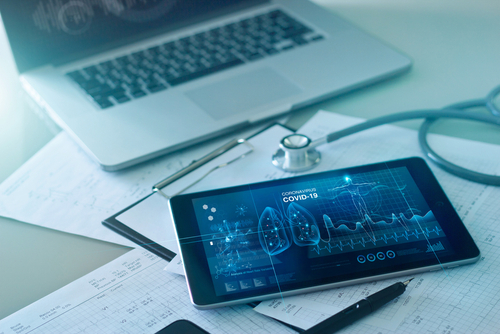
A bipartisan group of senators recently called on the Department of Health and Human Services (HHS) and the Centers for Disease Control and Prevention (CDC) to improve COVID-19 data collection and management.
Specifically, the lawmakers are asking the agencies to harness technologically advanced systems and build on existing data sources to provide public health officials and community leaders with more accurate, real-time information.
“During an emergency such as the current pandemic, scaling up and using existing systems to the greatest extent possible can improve data collection and contact tracing efforts. We, therefore, ask that you and your colleagues utilize and build on existing data sources, such as electronic health record (EHR) and laboratory information management systems (LIMS), claims databases, and other automated systems to provide government leaders, public health officials, community leaders, and others with actionable, easy-to-interpret data from a wide-ranging set of sources,” the senators wrote in a letter to HHS Secretary Alex Azar and CDC Director Robert Redfield. “Data generated by contact tracing, syndromic surveillance, and large-scale testing can help inform decisions on how to safely reopen communities and bring economies back online. Modernizing and automating data collection should augment detection, testing, and contact tracing plans, while also helping to prevent and improve the management of new outbreaks.”
The letter was signed by U.S. Sens. Tom Carper (D-DE), Bill Cassidy (R-LA), Michael Bennet (D-CO), Richard Blumenthal (D-CT), Bob Casey (D-PA), Susan Collins (R-ME), Chris Coons (D-DE), Tina Smith (D-MN), Thom Tillis (R-NC) and Mark Warner (D-VA).
Recent reports have shown that case reporting and contact tracing across the country are being hampered by a fragmented health system and antiquated technology. In Texas, for example, some patients had to wait l0 days to find out if they had been infected with the coronavirus.
“Fortunately, software-based systems providing data management for state public health entities and major testing laboratories already exist, and they are more efficient and accurate while reducing the burden of excess paperwork,” they wrote. “For example, North Carolina and Florida have taken steps to modernize and improve patients’ Covid-19 test results and other infectious disease symptoms. In Florida, nurses can register patients for COVID testing in the field using tablet computers that are connected to a HIPAA compliant cloud. By managing the patient and order requisition information electronically, lab processing time is reduced, and transcription errors are eliminated.”




